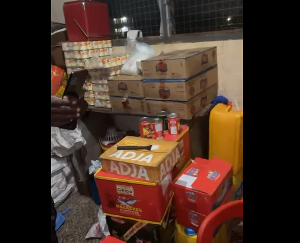A mortuary is a place where human bodies are kept for safety and preservation until burial or cremation is done. Mortuary can be on hospital grounds, private clinics or separately for the Coroner where cause of death is being investigated. This may or may not involve a post-mortem of the body but the Coroner makes sure that the necessary papers are issued.
In either private or public mortuaries, bodies are kept refrigerated by a Funeral Director who manages cold-storage sometimes combined with deep-freeze facilities so that bodies can, if necessary, be kept for some considerable time before funeral takes place.
This may be necessary where a close relative is abroad and cannot be contacted easily or is seriously ill in hospital awaiting recovery. Deep-freeze facilities are also to prevent decomposition of bodies and possible spread of infection. Chemicals such as formalin and embalming fluid are used for the preservation of bodies.
Some mortuaries do provide sitting arrangements for Church service in the Chapel of Rest for visiting relatives and friends of the deceased who come to pay their final respect and to leave personal mementoes such as clothes, flowers, photographs, letters and ornaments in the coffin of the deceased.
Where cremation is involved, care is taken that the mementoes are combustible. Other things needed in any mortuary must include toilet and washing facilities because washing and dressing the body of a deceased sometimes depends on the wish of relatives. If the deceased is not to wear his or her clothes, the Funeral Director can supply a funeral gown as part of inclusive service.
My complaint is against what goes on in public mortuaries in Ghana
In 1989, I and my children went to collect the body of my wife, name withheld, from the mortuary near the old hospital at Ho in the Volta Region for burial. When the body was removed from the refrigerator, it was dropped on the grassy floor before transferring it into the coffin.
We were shocked and saddened by the remorseless manner in which her body was handled by the mortuary staff. My daughter cried and I protested but it was no use because other families were also waiting for the bodies of their loved ones to be released to them; and we were getting late to take the body of my wife 40miles from Ho to her village.
The experience at Ho obviously left a lasting resentment and frustration in our mind and hearts throughout the process of our bereavement.
A second similar incident which was witnessed by a close family member happened in the mortuary of Tema general Hospital in 1998. When they arrived in the mortuary, they found the body of my brother, name also withheld, lain on a drenched mat on the floor. The only reason given to my grief stricken relatives was that the refrigerator broke down. That incident also left a lasting guilt and sadness that the body was not protected and it was left in such a degrading manner.
Although the above two incidents happened in deferent hospitals many years ago, the situation has not improved because the same family members have once again witnessed another upsetting incident on 13th of September, 2013 at Koforidua mortuary. On that day, my relatives went to the mortuary to have the body of my brother, “X” prepared for burial at home. When the body was removed from the refrigerator, the sadden relatives saw the mortuary staff dragging the body of my brother “X” on the floor and damping it out side. No complaint was made to mortuary officials that day.
But when I was informed about the incident then I decided to write and protest against the ill mannered practices taking place in public mortuaries with the hope that other relatives who witnessed similar incidents must join me to protest and to make our feelings known to health officials for prompt action to be taken.
How can the situation be improved?
It has become increasingly clear that luck of respect of bodies in Ghana mortuaries could be a problem of retrogressive institutional cultural behaviour and I suggest the following as possible solution.
- Introduction of a suitable training programme for all mortuary workers (if there is none at present).
- Periodic monitoring of the performance and attitude of mortuary staff by an independent evaluator with good knowledge of the purpose and functions of a mortuary.
- Deceased relatives must be free to complain to mortuary officials about grievances specifically related to management of the bodies of their love ones.
- The government must take full responsibility to provide up-to-date facilities such as trolleys and other equipment which will enable mortuary staff to perform their duty efficiently with utmost sensitivity, respect and dignity in a humanitarian manner because dead bodies too have rights.














